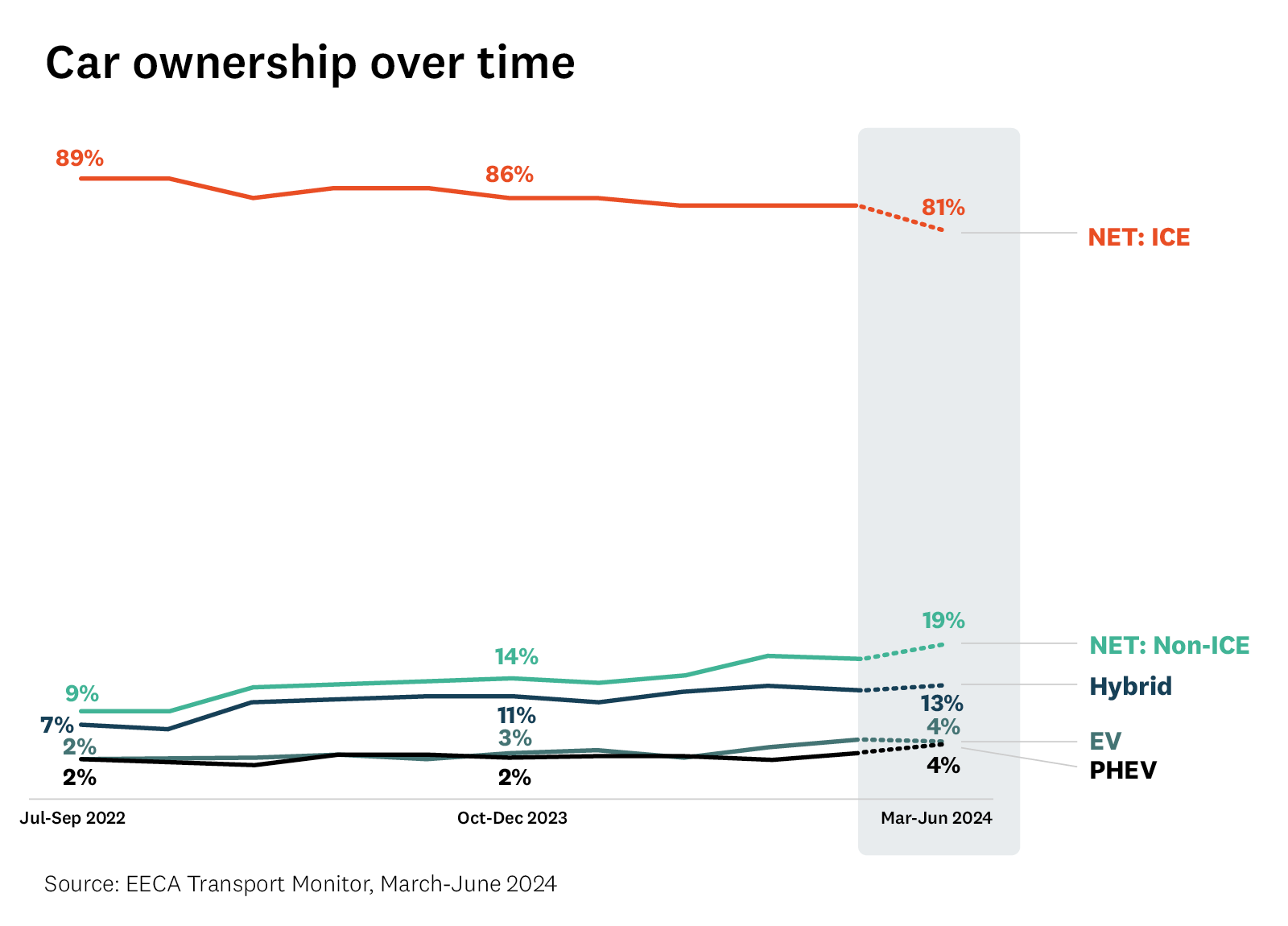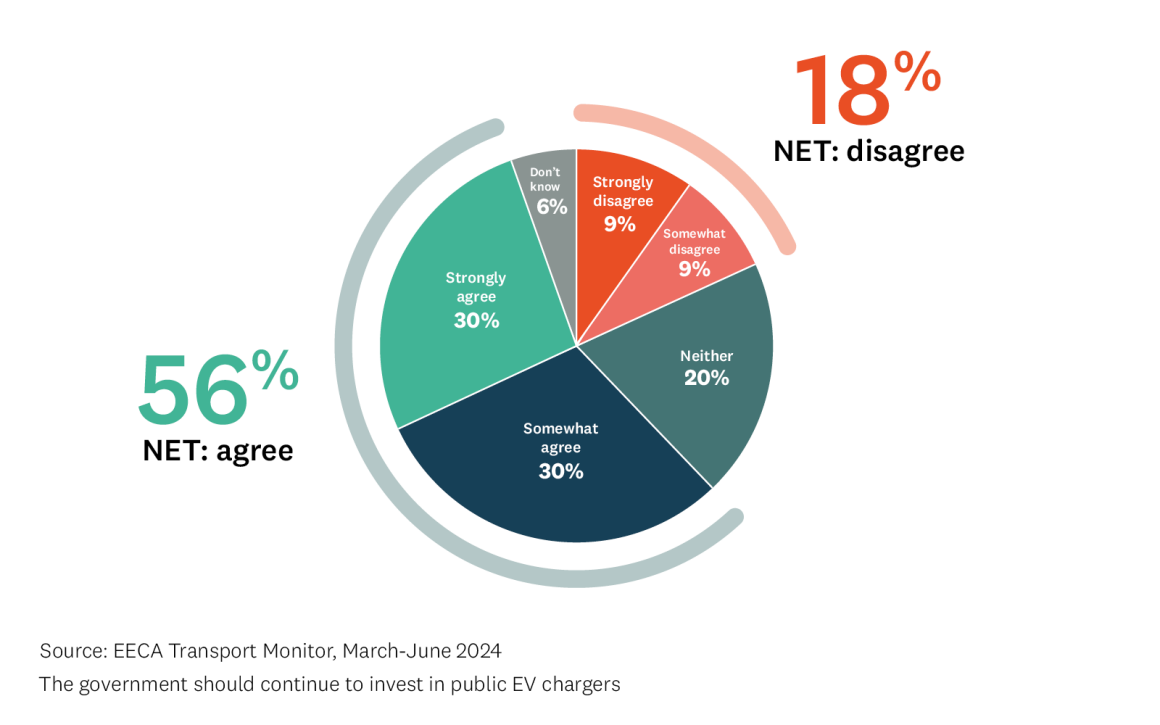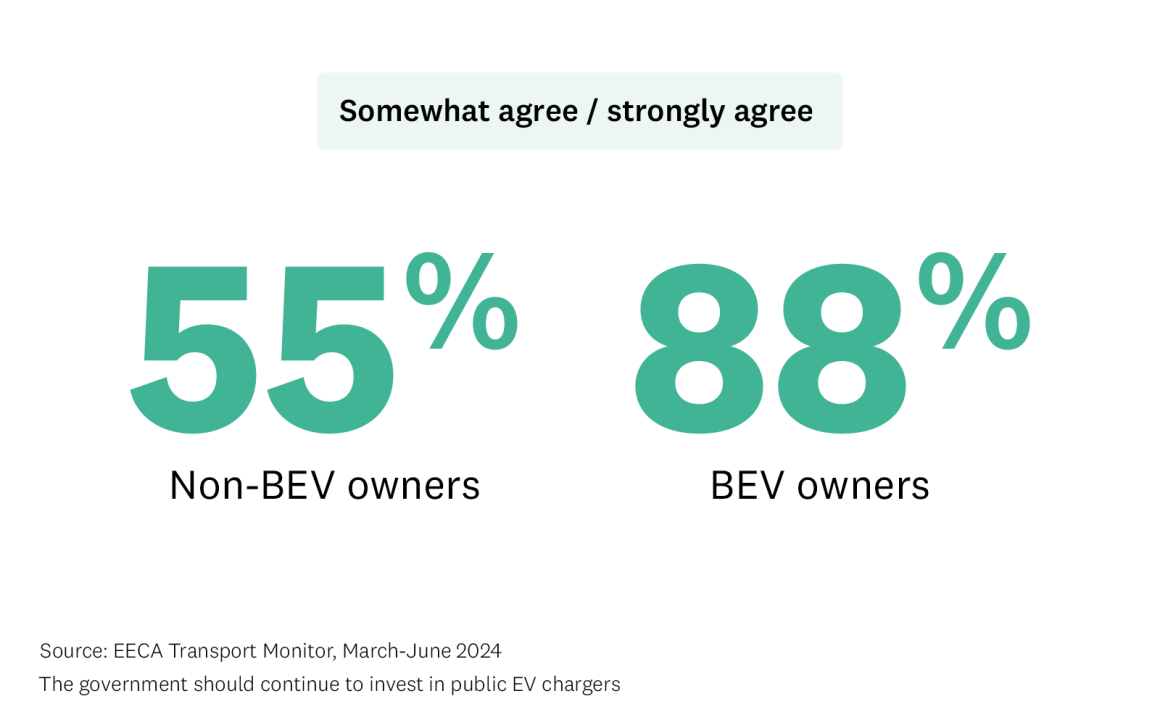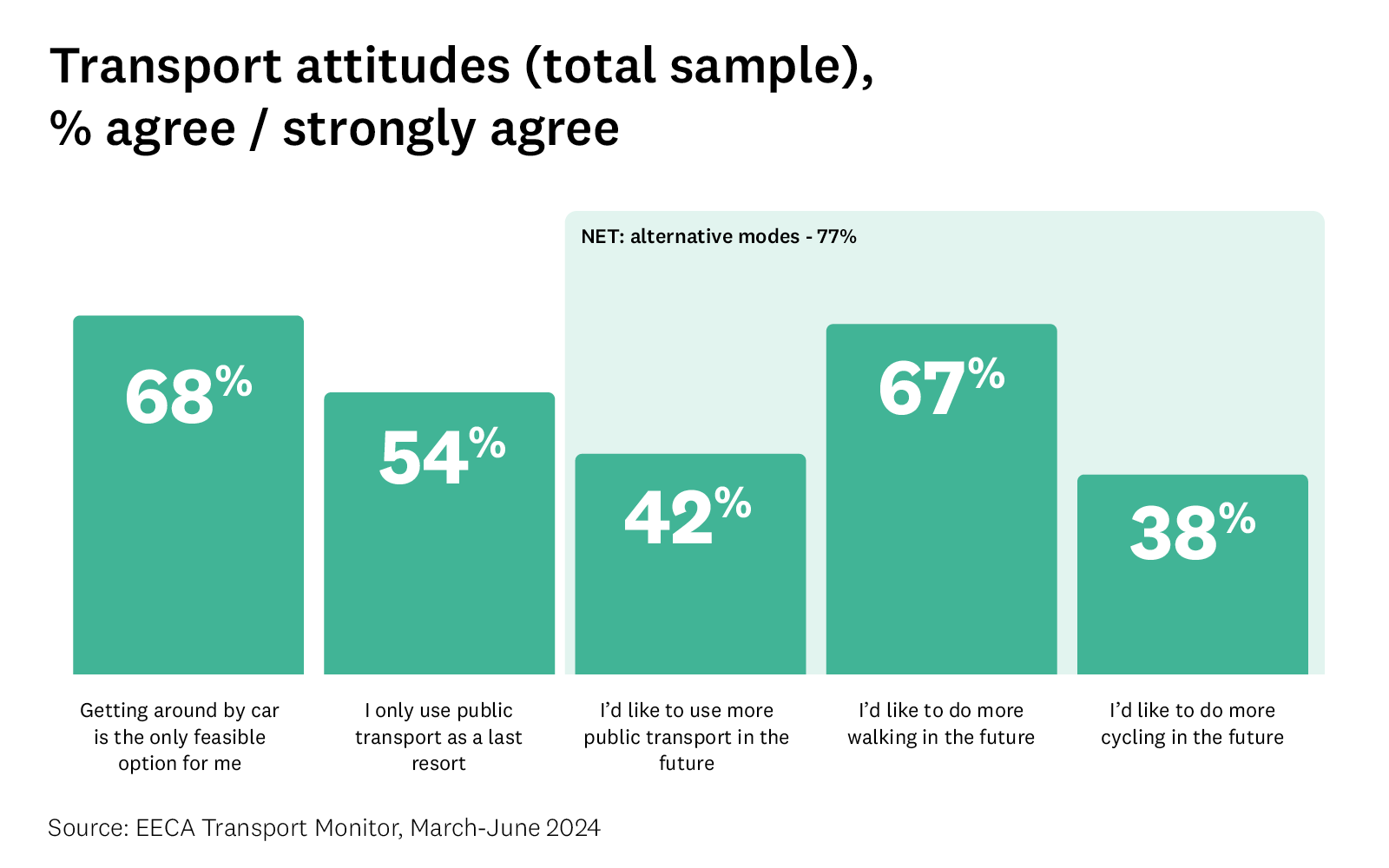Overview
Transport choices represent New Zealand consumers’ biggest use of energy. EECA is tracking New Zealanders’ transport behaviour and the factors that influence their choices.
Key findings
Ownership of non-petrol vehicles has been steadily increasing
Hybrids, battery electric vehicles (EVs), and plug-in hybrid electric vehicles (PHEVs) are becoming increasingly common in New Zealand.
While ownership is increasing gradually over time, purchase consideration for both BEVs and PHEVs decreased this year.
Correspondingly, there has been a dip in ownership of internal combustion engine (ICE) vehicles (petrol and diesel combined).

This follows the Clean Car Discount ending in December 2023, and a spike of buyers rushing to purchase EVs before it ended. Combined with an economic recession, EV sales were at their lowest proportion of overall vehicle sales at the start of this year since 2021.
There’s agreement that the government should continue to invest in public EV chargers
Even among those who do not own an EV, more than half of survey respondents supported further government investment in the public charging network. Nearly nine in 10 EV owners were in favour of this approach.


Nearly four in five New Zealanders want to increase their usage of alternative modes of transport
Over 50% of people said they “only use public transport as a last resort”.

Younger people were particularly open to shifting modes, while the 55+ group cited physical fitness as a barrier. Even among those who did not report they “aren’t physically fit enough”, the 55+ group were significantly less likely to report wanting to do more cycling and walking.
Both cycling and walking were most often motivated by health benefits, but the benefits of walking did not resonate as highly with respondents.
For those who never engaged with a specific mode, at least 1 in 5 or more would like to do more, or start, in future.
Read more
-
Electric Vehicle Charging Survey
Insights into EV owners’ charging habits, and use of public EV charging.
- Electric vehicles
- EV charging
- Market research
-
Plugging into the future: How New Zealand is electrifying its roads
An overview of public EV charging infrastructure in New Zealand.
- Electric vehicles
- EV charging
